
The end of the year is a popular time for reflection and making plans for the year ahead. Different surveys show different numbers, but the undisputed consensus is that most resolutions fail by February. The reasons for “Quitters’ Day,” which falls on the second Friday in January, vary with every individual. However, some goals are worth keeping.
One of the most popular New Year’s resolutions is also the hardest to keep. Exercising is a challenge because it’s hard to stick with. “It really is a lifestyle change because of the amount of effort you have to put in,” Alyson Pidich, medical director of the Ash Center, said. The best solution to the problem is to just start moving more and progressively increase the the amount of daily physical activity.
The biggest mistake people make when planning health goals for the following year is focusing too much on “how” and not at all on “why,” according to Dr. Daryl Gioffre, a New York City nutritionist and author of “Get Off Your Acid.” Eating better and going to the gym are not sustainable unless you have a powerful motivation to eat better and go to the gym, he noted.
Gioffre suggested the SMART approach when listing resolutions — specific, measurable, achievable, relevant, and time-based goals. You have to make it really practical and convenient for your lifestyle, and you have to set a deadline. “A goal without a specific time is only a wish,” he added.
The following list, in no particular order, is based on interviews 24/7 Wall St. did with doctors who specialize in disciplines ranging from nutrition to internal medicine and cardiology.
Click here to see 40 health resolutions doctors want you to keep in 2019.

1. Visit your doctor
It’s shocking how many people are just not seeing a doctor because they either can’t get time off or don’t prioritize their health, Dr. Renee Dua, the chief medical officer and co-founder of Heal, noted. There are medical centers, including Heal, that are open on weekends or have doctors available after hours. “It is shocking how little effort people put into understanding their illness,” Nauman Mushtaq, MD, MS, medical director of cardiology, Northwestern Medicine Bluhm Cardiovascular Institute, said. “This is especially important for chronic diseases where a large part of staying healthy is lifestyle modifications.”
[in-text-ad]

2. Talk about mental health
Make sure you have a talk with your doctor about pressures you feel at work or home, about possible signs of depression you may be exhibiting, and about lack of sleep, if that’s an issue, Dua said. “Psychiatrists often don’t take insurance, which makes treatment very expensive, but [general practitioners] are the first step and can initiate treatment by talking about the problem and maybe prescribing medication,” she added.

3. Get screened for cancer
You don’t even need a referral for a mammogram if you’re older than 40, or for a colonoscopy if you’re 50 or older, so you really should get screened if you are over a certain age, especially if you have a family history of cancer. Annual lung cancer screening with low-dose computed imaging is also recommended for smokers, even if they have quit for years, and for people between 55 and 80, according to Dua.
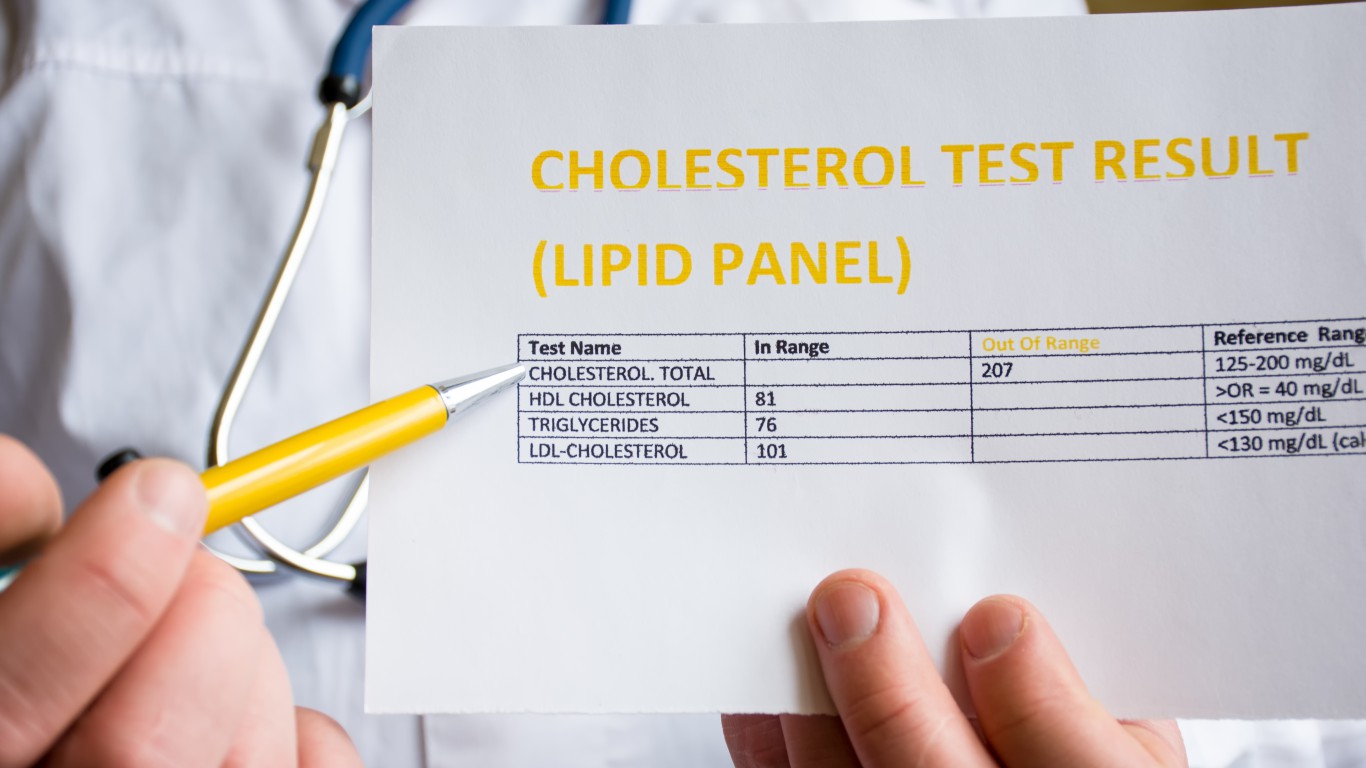
4. Check your cholesterol
It’s a mistake not to get your cholesterol checked if you are older than 35, Dua noted. Adults should check their cholesterol levels every four to six years, according to the CDC. High levels of the fatty substance in your blood, which show no symptoms, are a major contributor to heart disease, which is the No. 1 killer in the country. The body makes the cholesterol it needs, but people get extra amounts from the foods, such as fatty meats, they consume.
[in-text-ad-2]

5. Drink in moderation
Anybody has the right to enjoy alcohol, but it should not be done in excess, according to Dua. Many people overindulge — 40% of adults in the United States drink too much, a 10% increase since 2014. Drinking in moderation is defined as having up to one drink per day for women and up to two drinks per day for men. Alcohol interferes with the brain and can cause changes in mood, behavior, and thinking. Excessive consumption can cause stretching of the heart muscle, irregular heartbeat, high blood pressure, fatty liver, cirrhosis, and several cancers.

6. Don’t trust celebrity-endorsed products
When it comes to fad diets, supposedly healthy new products or magical workouts, “the truth is we don’t know if they are safe,” Dua said. “They have not been in existence for too long.” There is not enough evidence to conclude whether the products are doing more harm than good. “So do your research and ask your doctor first.”
[in-text-ad]
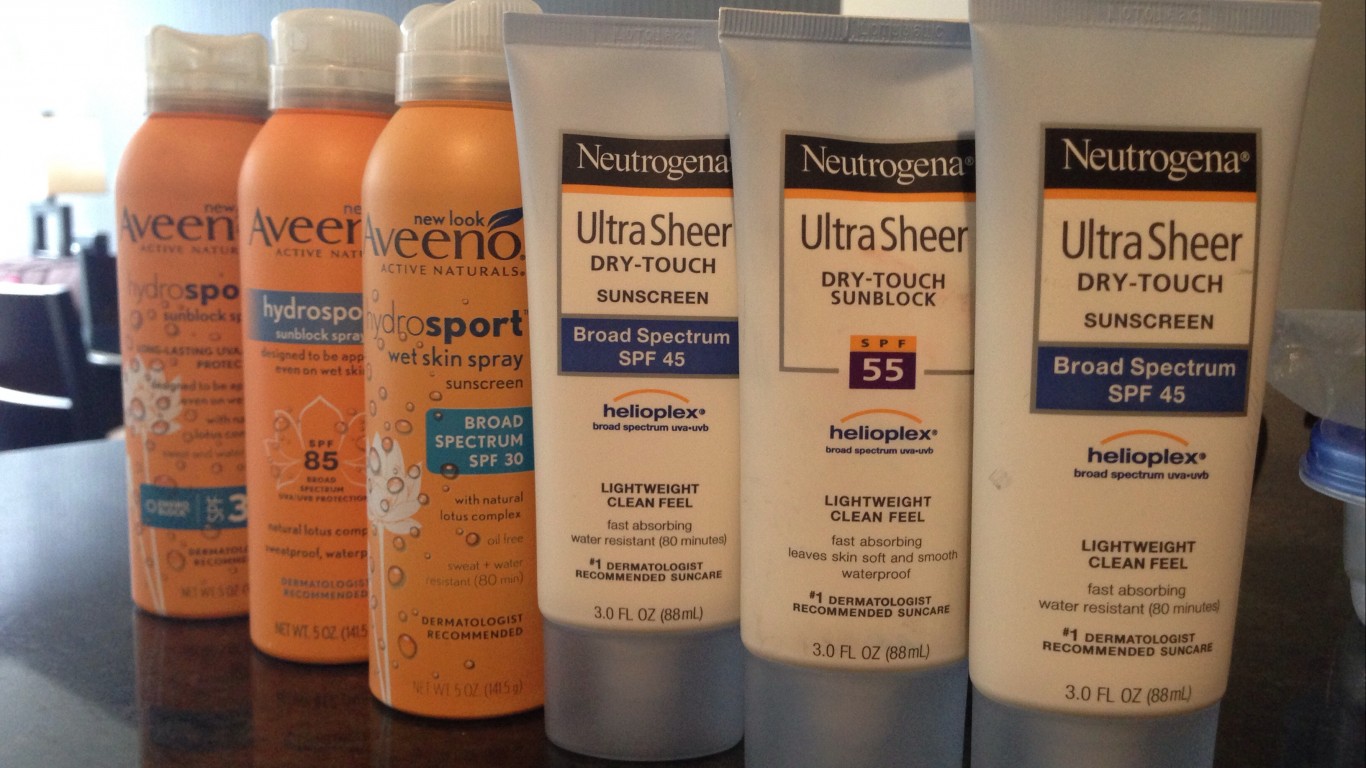
7. Wear sunblock
“Americans spend a lot of time in the sun but don’t protect their skin from it,” Dua said. Ultraviolet radiation hurts the skin year-round, not just in the summer. But most Americans don’t do anything to protect themselves, according to research. UV radiation, the most preventable risk factor for skin cancer, can penetrate clouds and reach your skin, if it’s not covered. Only 14.3% of men and 29.9% of women regularly use sunscreen on their face and other exposed skin.

8. Wear a helmet when required
“I see too many preventable injuries, especially in children,” Dua said. Every hour, 25 kids are treated in emergency rooms across the country for bicycle-related injuries. About 11% of them are in for traumatic brain injuries. The age group with the most injuries is 10 to 14 year olds, who tend to not wear a helmet.

9. Lock guns away
About a third of homes with children in the United States have guns, and 2 million children live in a house where guns are unlocked and loaded, according to the American Academy of Pediatrics. “We don’t even enter a home without asking about guns,” Dua said. “Some patients get very offended, but we want to make sure your kids are safe.” Every year, about 1,300 children die and about 6,000 are treated for wounds that occurred from playing with guns.
[in-text-ad-2]

10. Replace juices with water
“Many patients I see think they have a lot of water because they had coffee or fruit juice,” Pidich said. Fruit juices and soda add 1,000 extra calories a week, which equals several pounds of weight gain a month, she noted. “Nothing replaces water.” Moreover, coffee is a diuretic, which causes you to lose weight and all the nutrients it transports to the rest of your body.

11. Cut back on caffeine
Caffeine inhibits thyroid function and often masks an underlying hormonal issue, according to Pidich. “If you literally have no energy to get through the day without having coffee in the afternoon, you need to check it out.” Caffeine hurts the teeth, research in rats shows, but it’s not just about stains. It makes the enamel surface rougher, and reduces calcium and phosphorus levels. Also, caffeine may be linked to breast cancer. It lowers the body’s pH levels and cancer grows in an acid environment.
[in-text-ad]

12. Ditch social media
About a fifth of people with social media accounts cannot go more than three hours without checking them, according to the Anxiety and Depression Association of America. You need less screen time. This is especially true for children. “Research has shown that social media increases anxiety and depression among kids,” Pidich said. The constant comparison to others is not healthy.

13. Relax for 20 minutes a day
You absolutely need at least 20 minutes a day to relax or do something you genuinely enjoy, according to Pidich. “It’s best if you meditate because after eight weeks we’ve seen growth in gray matter, which improves learning, memory and emotion regulation.” It’s OK if you don’t want to mediate, but you have to find something that calms you down and make that a daily ritual, Pidich noted.

14. Check your blood pressure regularly
For patients with, or the possibility of, hypertension the biggest concern is that they are not keeping track of their blood pressure, according to Marc Conte-Russian, MD, internal medicine at Northwestern Medicine Central DuPage Hospital. The most accurate blood pressure values are the ones that are checked at a patient’s home, he noted. “Of course, it would be important to check the home cuff regularly to ensure it is well calibrated.”
[in-text-ad-2]

15. Get a rebounder
Jumping on a rebounder, a mini trampoline, is the most powerful exercise you can do, according to Gioffre. A NASA study has shown that it is 68% more effective than running, he noted. The magnitude of the biological stimuli is greater with jumping on a trampoline than with running, researchers concluded.
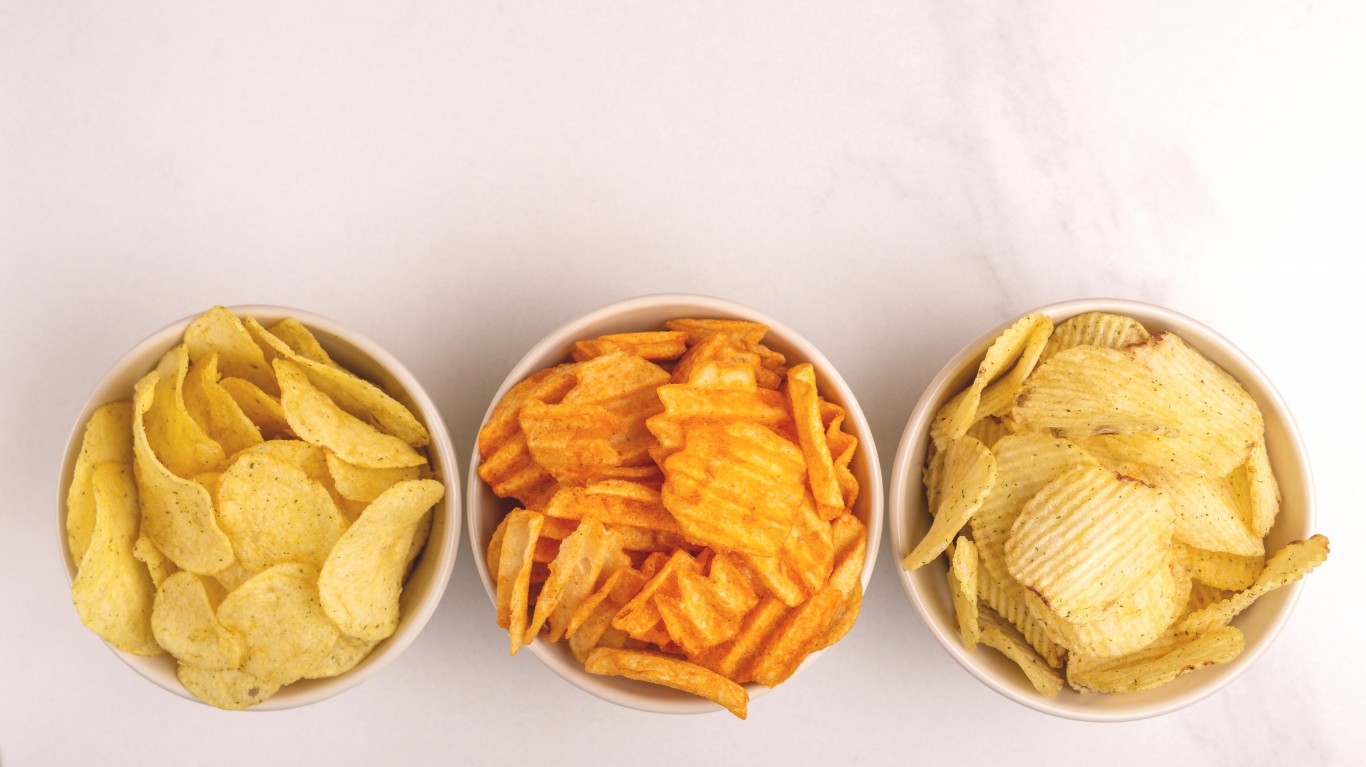
16. Check salt content in foods
“The most common mistake patients make is not checking the sodium content in the foods they are eating,” Conte-Russian said. The amount of salt in the diet can drastically alter the blood pressure of a person who already suffers from hypertension, he noted. “Only about 25% of the sodium in the American diet comes from added ‘table salt,’ so it is very important to check how much sodium has already been added [during manufacturing] to the foods patients are eating.”
[in-text-ad]
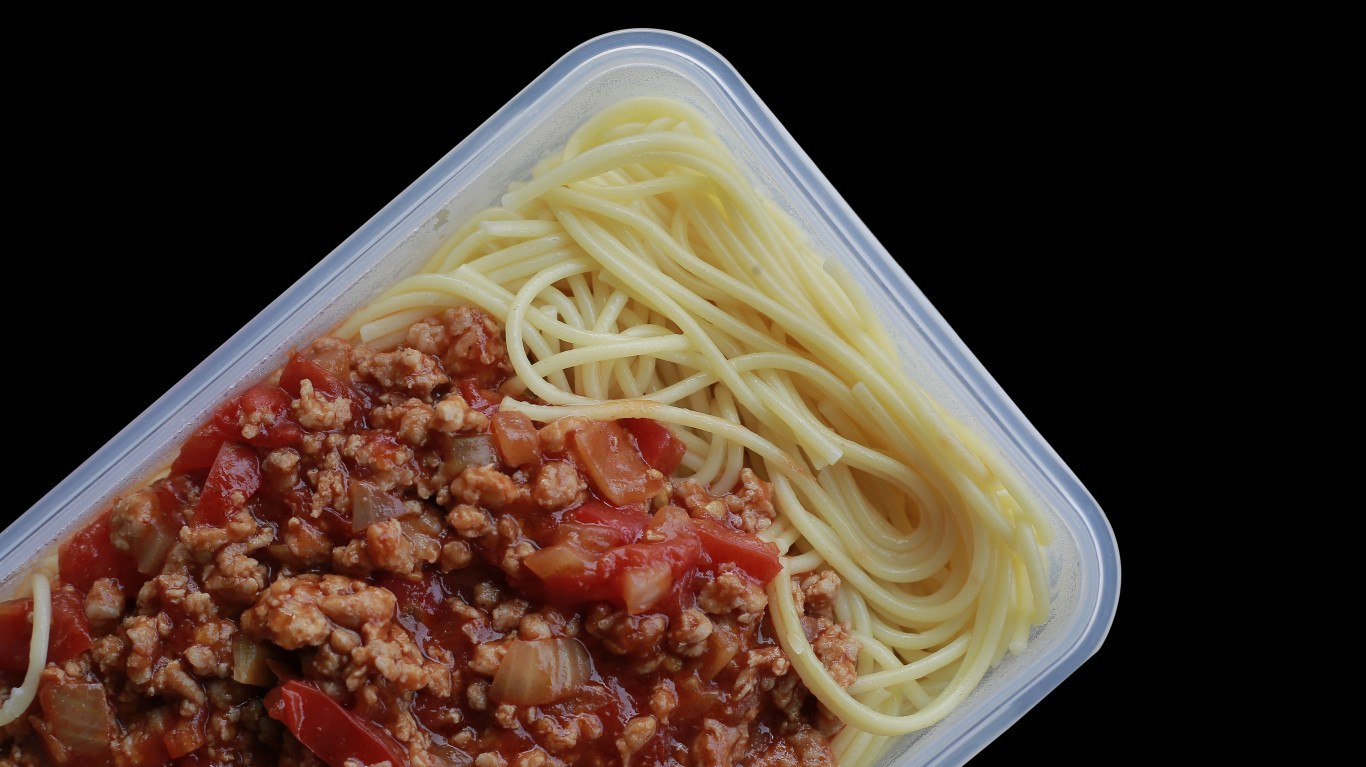
17. Avoid microwavable dinners
These processed foods may be cost effective but are often lacking in many of the essential nutrients that the body needs to function correctly, according to Conte-Russian. Microwavable dinners usually have too much sodium or sugar, which can lead to hypertension and/or increased risk of diabetes when eaten consistently, he noted.

18. Get your teeth cleaned
A good resolution is to get your teeth cleaned and to do so on regular basis. “There is a strong correlation between gum disease and cardiac health,” according to Dr. Alfred Casale, associate chief medical officer for Geisinger and chair of the Geisinger Heart Institute. “It’s related to inflammation, which is the body’s response to perceived injury.” The bacteria in the mouth that causes periodontal disease can move into the bloodstream and lead to inflammation in the blood vessels, which increases the risk of heart disease and stroke.

19. Move more
“I don’t care what you do, anything is better than nothing,” Casale said. “It’s easy to keep the heart healthy with pretty modest exercise.” Small, incremental and subtle changes are what you should be aiming for. A few examples include parking the car farther away or walking up a few flights of stairs. There is no doubt that exercising for 20 minutes a day is better than aspiring to run a 5K, he noted.
[in-text-ad-2]

20. Don’t go crazy with your diet
“You can find 15 books on every new hot diet out there, but they all boil down to the notion that vegetables and plant-based foods are healthy and you need modest intake of calories to control weight and metabolism,” Casale said. Just make a few changes that accommodate your lifestyle, he suggested. Eat dessert and steak if you like them — just not every day. “I see many patients who go manic about their diet after a scare, but it doesn’t last,” he added.

21. Get a flu shot
“It’s remarkable how in 2018 we argue that the flu vaccine isn’t a smart thing to do,” Casale said. The 2017-2018 flu season was the deadliest since tracking began in 1976, killing 80,000 people in the United States alone. “The fear that the shot causes the flu is ridiculous — the vaccine is made of dead flu particles,” he added. The flu can make heart disease a lot worse, Casale noted. “The heart and lungs work together as a team, and if one is hurt, the other will be, too.”
[in-text-ad]

22. Stop eating every two hours
Three satiating meals a day with no snacks in between is more than enough to keep the body healthy, according to Gioffre. Eating every two hours, even if it’s small snacks, is not a good idea. Every time you eat, your body releases insulin, which is a fat-storing hormone, Gioffre explained. The more you eat, the higher your insulin levels, and the more fat is stored, he noted.
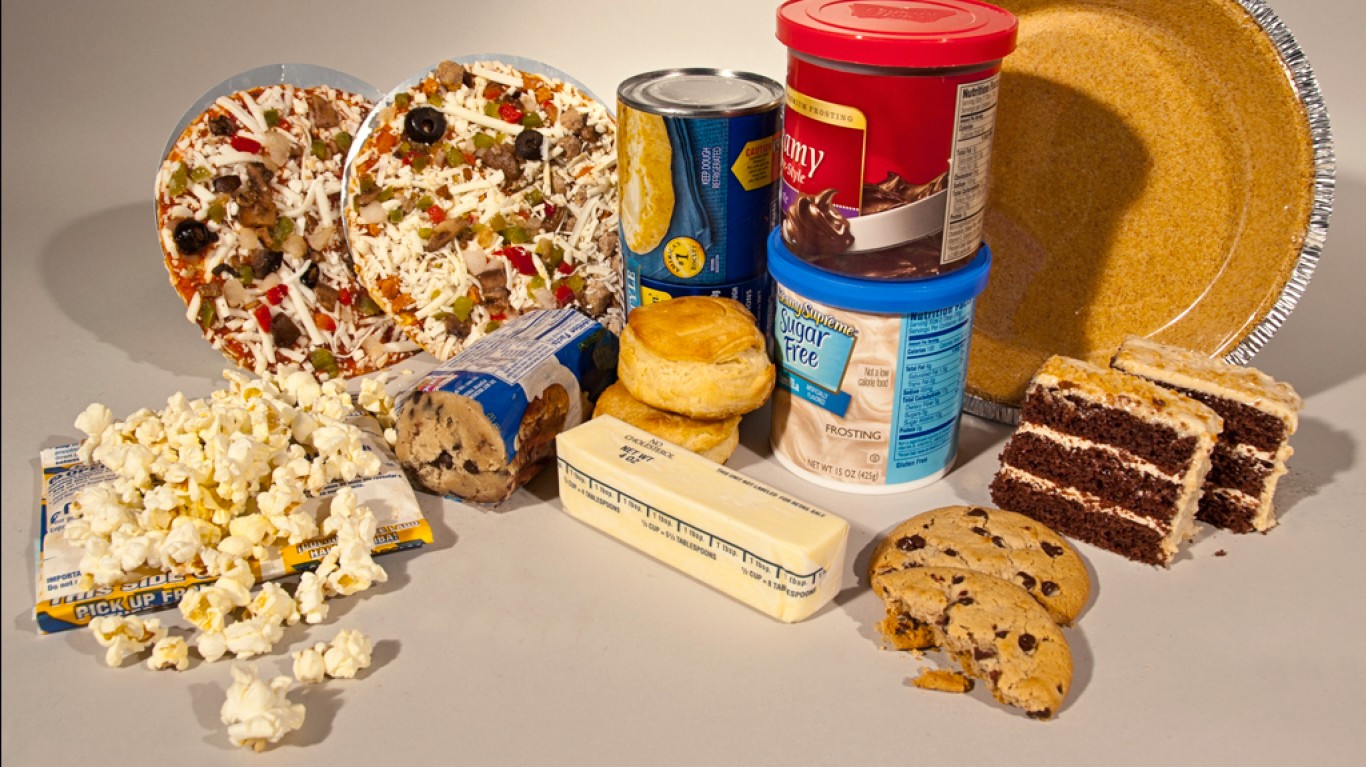
23. Cut out processed food
Processed food, and that includes all food that comes in a box, contains excessive amounts of sugar, salt and fat, Pidich noted. “Hydrogenated oil is added to make the food smooth, flavorful and to last longer,” she added. The problem is that it also contains trans fats, which is the worst type of fat because they raise your LDL (“bad”) cholesterol and lower your HDL (“good”) cholesterol.

24. Don’t eat less
The biggest problem Gioffre sees in patients is the misconception that starving leads to weight loss. “You can eat more and lose weight but you have to know what foods to put in your body,” he said. A calorie-starved body holds onto fat because it goes into damage control mode, thinking it’ll need the fat for energy. As a result, the body is famished and people end up eating meals that are mostly carbs, which leads to inflammation, which in turn can lead to a cascade of issues including bloating, leaky gut and weight gain.
[in-text-ad-2]

25. Make lunch at home
This is the only way you’re going to know what actually is in your food and how it was made, Pidich noted. This will in turn decrease the amount of processed/pre-made foods people are eating, Conte-Russian noted. “It only takes a bit longer to cook foods by hand rather than relying on pre-made meals.” Saving money is a welcome bonus. Research has shown that people who cook at home have healthier diets at a lower cost.

26. Focus on whole foods
“The benefits of eating whole foods instead of processed foods, which are often leached of the essential vitamins and nutrients all bodies need, can make a drastic difference on weight and overall health,” Conte-Russian said. Another important factor to consider is the amount of calories that are being ingested, he noted. “It is often the case that when eating processed foods, compared to whole foods, the amount of calories consumed per actual amount of food ingested is significantly higher, which in turn can result in significant weight gain and obesity.”
[in-text-ad]

27. Add vegetables to meals
Most people’s resolutions are about losing weight, but so many factors play a role in that massive and broad goal. “You have to have smaller, manageable goals,” Pidich said. One of the most important of them is to eat more vegetables. “They should be 50% of your plate.” The benefits extend beyond waist size. The dietary fiber in veggies is linked to lower risk of cardiovascular disease as well.

28. Eat less meat
A lot of people are succeeding in keeping this resolution. A study conducted by Johns Hopkins Center for a Livable Future found that two-thirds of American consumers have intentionally reduced their meat consumption without becoming vegetarian or vegan. Aside from the environmental benefits of eating less meat, some of the physical benefits include weight loss, lower blood pressure, and lower risk of diabetes and cancer. The World Health Organization has classified processed meats as carcinogens.

29. Quit smoking
“There is no level of smoking that’s good. Period. There is no such thing as ‘but I smoke only a few days a week,'” Casale said. The ill effects of smoking are well established and include increased risk of several cancers including cancer of the lung, mouth, throat, and esophagus. “Smoking also increases the risk of heart attack and stroke and can also lead to emphysema and chronic breathing problems,” Conte-Russian said.
[in-text-ad-2]
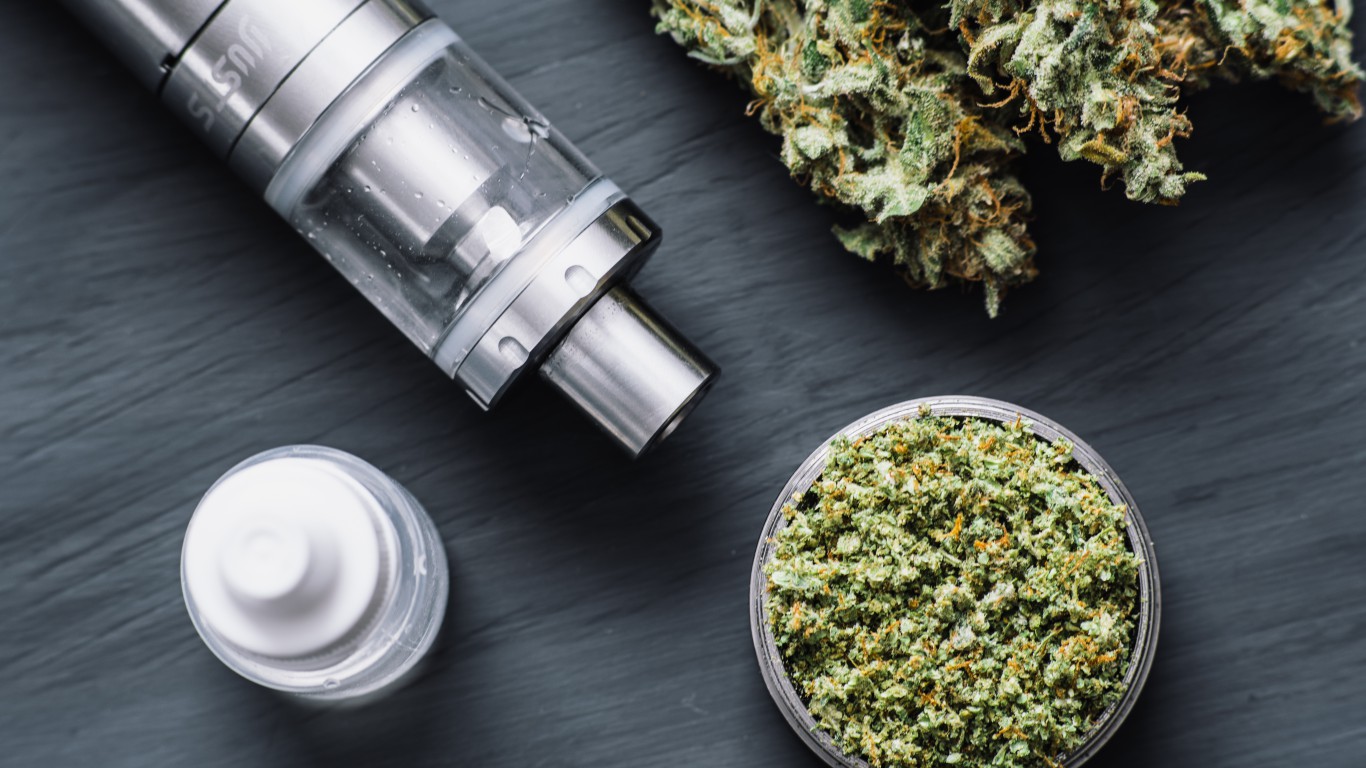
30. Quit vaping, too
“For starters, it is still nicotine being inhaled thus it is addictive,” Conte-Russian said. Regular nicotine use can also lead to elevated blood pressure. Additionally, the mixing agents that are used can cause inflammation to the lungs, he noted. Casale added that regardless of how many flavors have been added to make people think it’s safe, the body still has less oxygen, which has been replaced by fumes in the lungs.

31. Cleanse your body
“You cannot exercise your way out of a bad diet,” Gioffre said. He recommends doing a complete seven-day body reset to undo the damage inflicted on your body between Thanksgiving and New Year’s. “Many people hear ‘detox’ and think something bad, but this is because they don’t know what to do or what it is,” he added. You don’t starve but you do stop “pumping acidic foods into your body.” At the end of it, people usually feel motivated to keep improving their lifestyle and add exercise, he noted.
[in-text-ad]
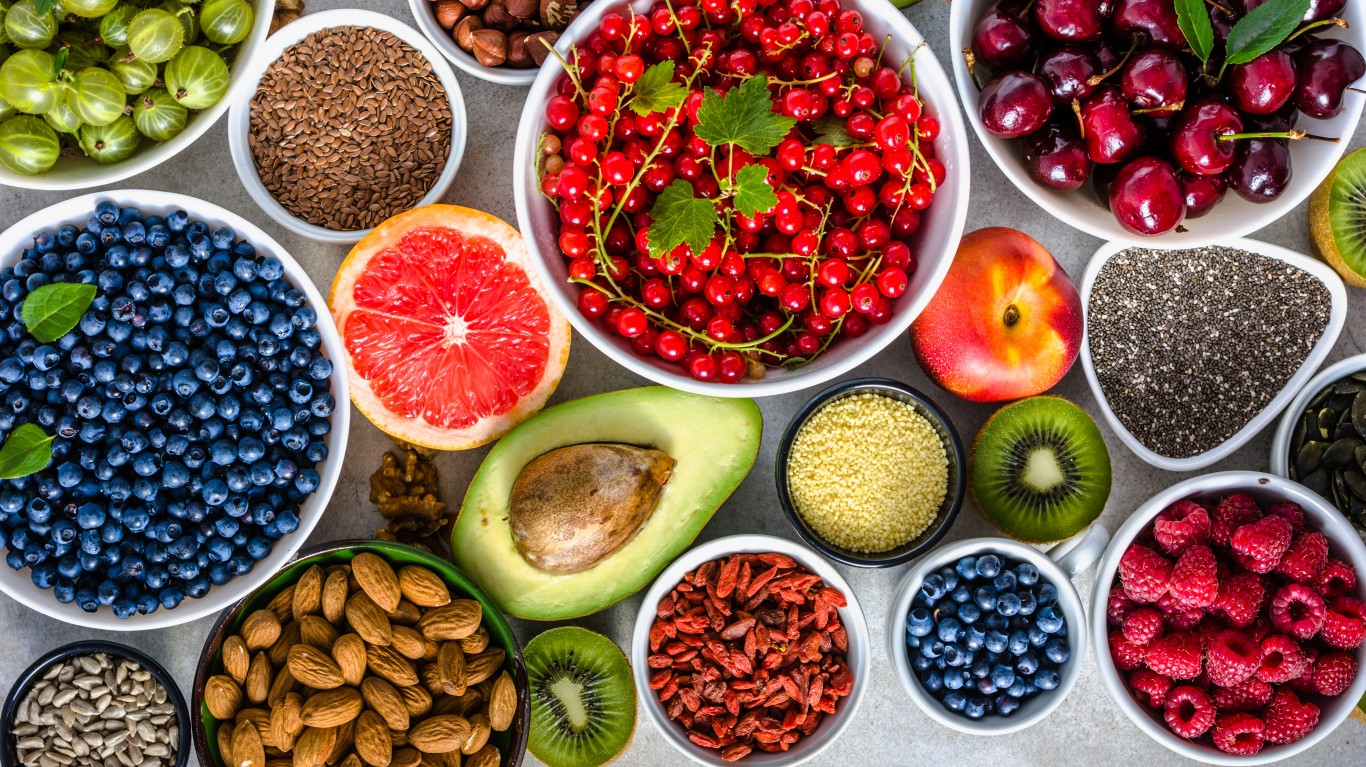
32. Add antioxidants to your diet
Even though 92% of Americans don’t know what antioxidants are — they protect your cells against harmful substances — many of us consume them, albeit not in enough quantities. Examples include vitamins C and E, and carotenoids. Antioxidants, whether from food or supplements, are among the best things we can add to our diet to increase longevity, according to Pidich.

33. Forget about diet products
Diet soda, for example, is even more damaging than regular soda, Gioffre said, because of artificial sweeteners. They contain chemicals that mimic sugar, making the body think it’s actually getting sugar and craving more, he explained. This eventually leads to weight gain. The artificial, non-saccharide sweetener aspartame found in diet sodas is the worst, he noted. It can lead to insulin resistance and trigger fatty liver disease, liver and lung cancer, and increased risk of diabetes.
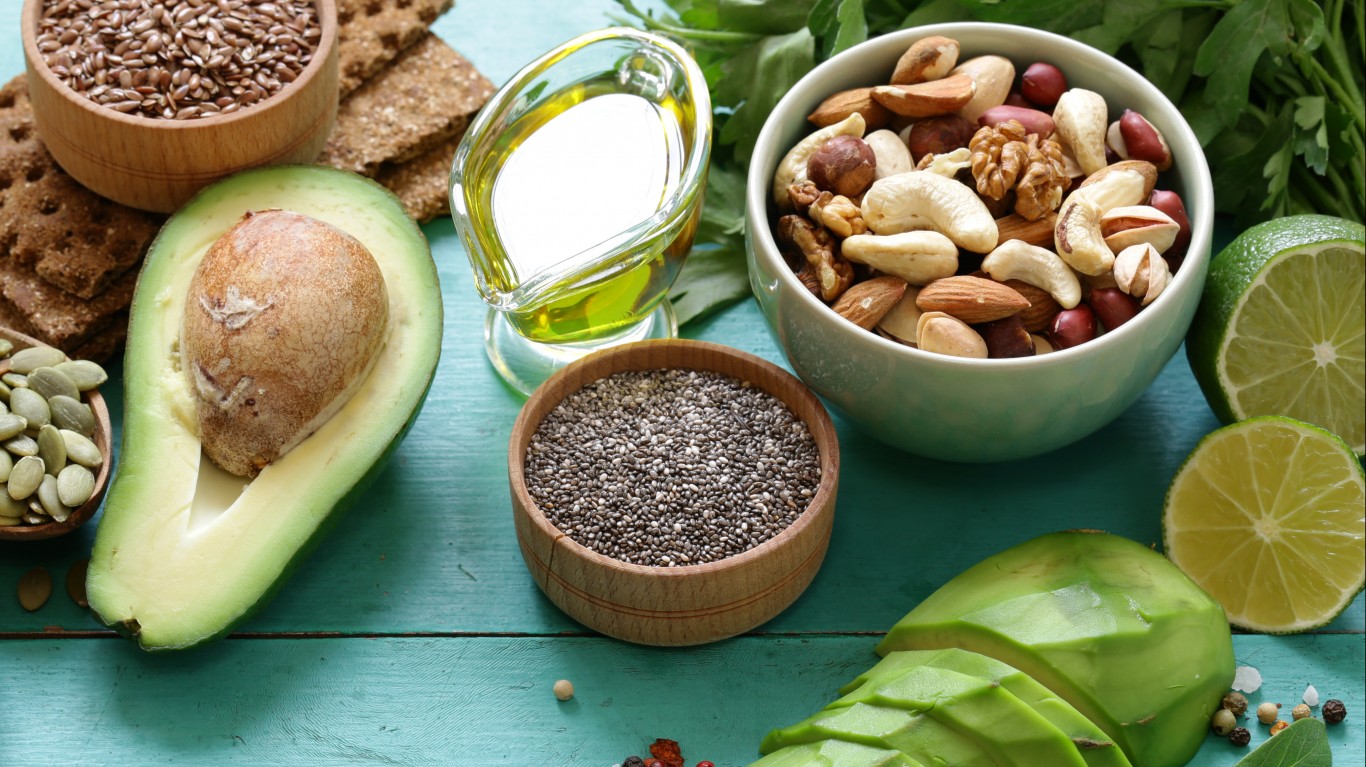
34. Don’t fear fat
People think they have to stay away from fat to lose weight, but this is simply not true, Gioffre said. “There are fats that kill people and fats that heal them.” Raw nuts, avocado, olive oil, raw nut butter — all of these are good fats and should be consumed without fear. One should have seven to 10 servings of healthy fat a day, spread over three meals, Gioffre noted. Healthy fat is key for normal growth and development. It provides energy and helps the body absorb nutrients.
[in-text-ad-2]
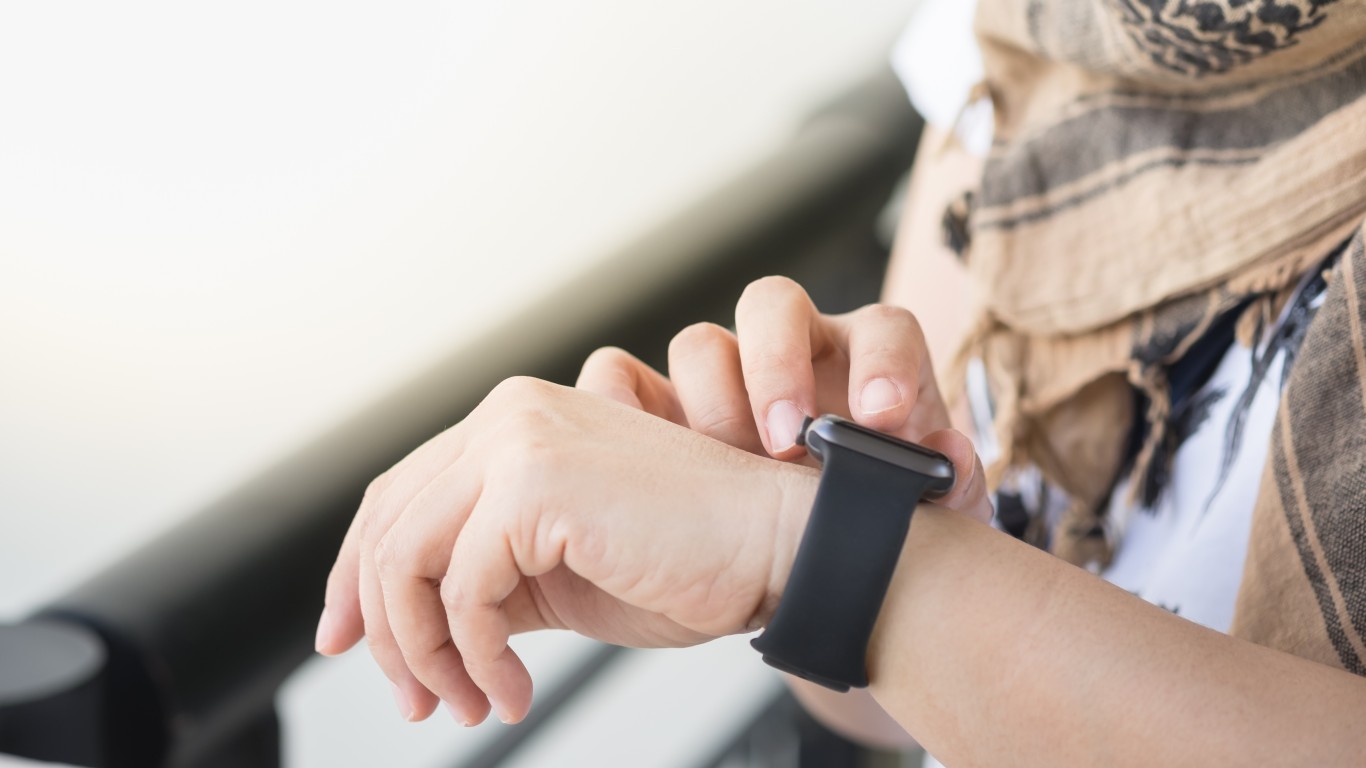
35. Try intermittent fasting
Intermittent fasting is the newest hot trend in the health and fitness industry. Eating two meals over eight hours and not consuming food for 16 hours is not a bad idea, Gioffre noted. “No food means no insulin and no sugar,” he said. “This forces the body to use fat as energy instead of carbs or sugar.

36. Really try to go on vacation
January 29, 2019 is National Plan a Vacation Day, so this is a timely resolution. Since 2000, Americans are on a steady pattern of taking less vacation time. The mere act of planning a vacation decreases stress, Pidich said. Being on one is even better. You should always find ways to relieve stress, as it is the silent killer of all things, she noted.
[in-text-ad]

37. Make sure you have the right meds
“I see many older patients and half of them don’t know what medication they are taking, half of them have expired meds,” Dua said. Just bring a whole bag of every pill you’re taking and go over the prescriptions with your doctor, she suggested.

38. Exercise 30 minutes a day
“Data shows that even 30 minutes a day, three or four times a week, has tremendous health benefits, such as eating better, sleeping well and [keeping a] clear head,” Dua said. The key to enjoying all the benefits, however, is consistency. “You can’t just work out on Saturday for two hours and expect the same results,” she added.

39. Walk during your lunch break
Walking for about 10 minutes while going to get lunch and another 10 while going back to the office adds up to about a mile, Pidich said. It’s also good for your mental health. Spending more time outdoors during lunch breaks by walking in a park frees the mind. Lunchtime walks improve enthusiasm, relaxation, and stress at work, according to research. Employees who engage in recovering activities during lunch breaks are happier at the end of the work day.
[in-text-ad-2]
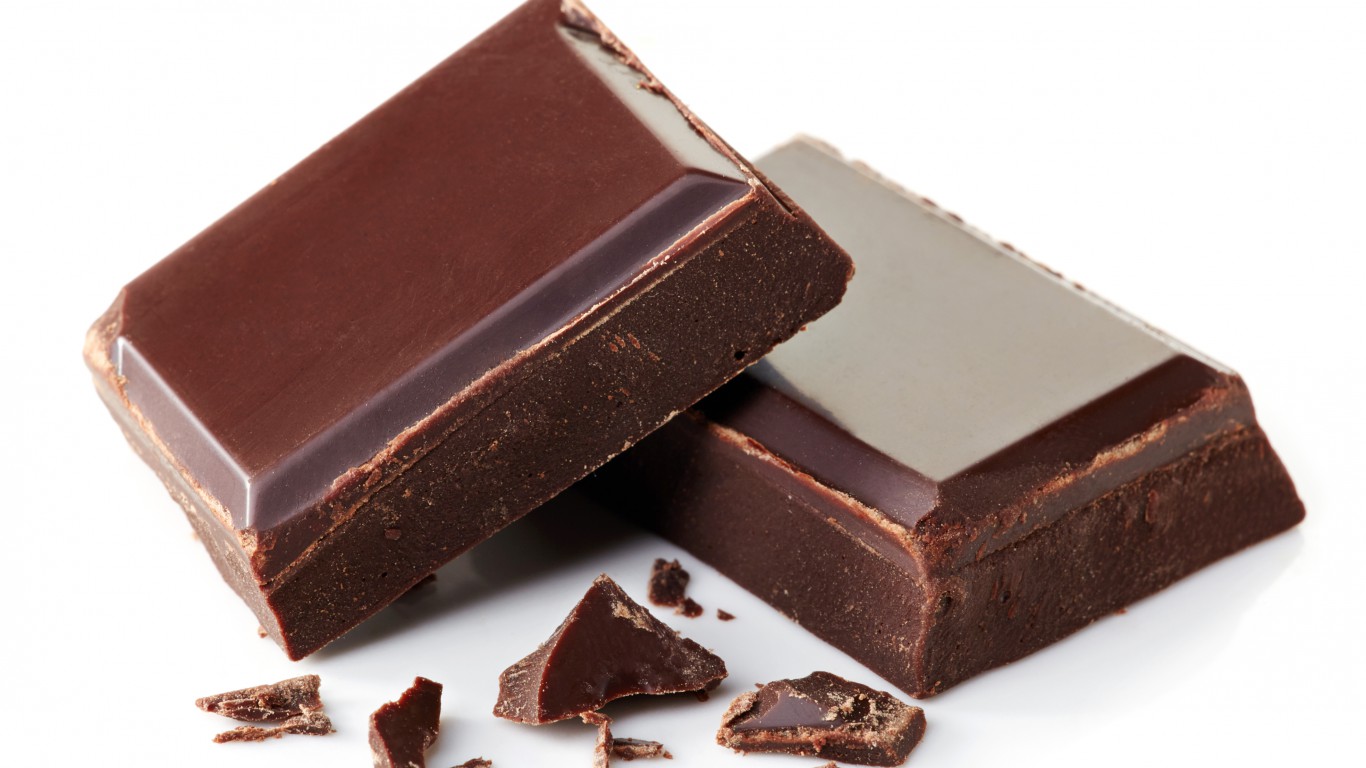
40. Eat less sugary food
It’s hard to completely cut out sugar because it is addictive, Pidich said, but small changes can go a long way. “Pick the worst sweet food you eat and cut it from your diet.” If you like chocolate, switch to the kind that has at least 76% cocoa, which has less sugar and is drier. Your body will thank you for whatever you do to reduce sugar intake because it raises your blood sugar too fast, then leads to a “sugar crash,” leaving you anxious. In addition, bacteria in your mouth thrives on sugar, causing cavities; joint pain worsens due to increased inflammation; and skin ages faster.
100 Million Americans Are Missing This Crucial Retirement Tool
The thought of burdening your family with a financial disaster is most Americans’ nightmare. However, recent studies show that over 100 million Americans still don’t have proper life insurance in the event they pass away.
Life insurance can bring peace of mind – ensuring your loved ones are safeguarded against unforeseen expenses and debts. With premiums often lower than expected and a variety of plans tailored to different life stages and health conditions, securing a policy is more accessible than ever.
A quick, no-obligation quote can provide valuable insight into what’s available and what might best suit your family’s needs. Life insurance is a simple step you can take today to help secure peace of mind for your loved ones tomorrow.
Click here to learn how to get a quote in just a few minutes.
Thank you for reading! Have some feedback for us?
Contact the 24/7 Wall St. editorial team.
 24/7 Wall St.
24/7 Wall St.



